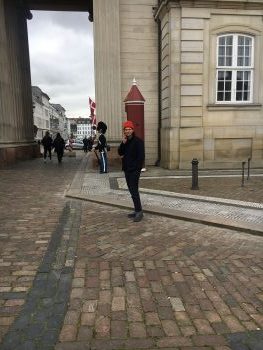
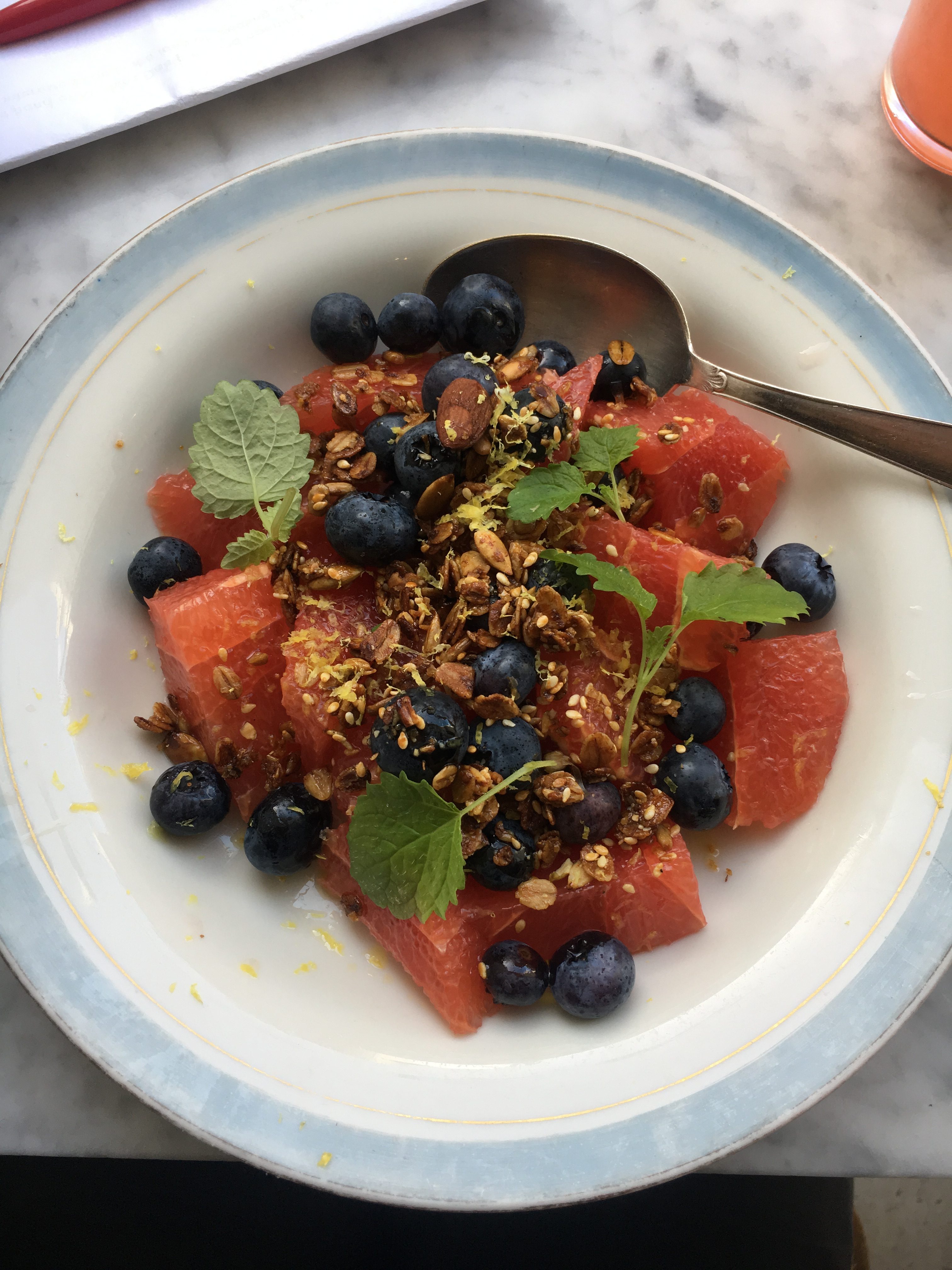
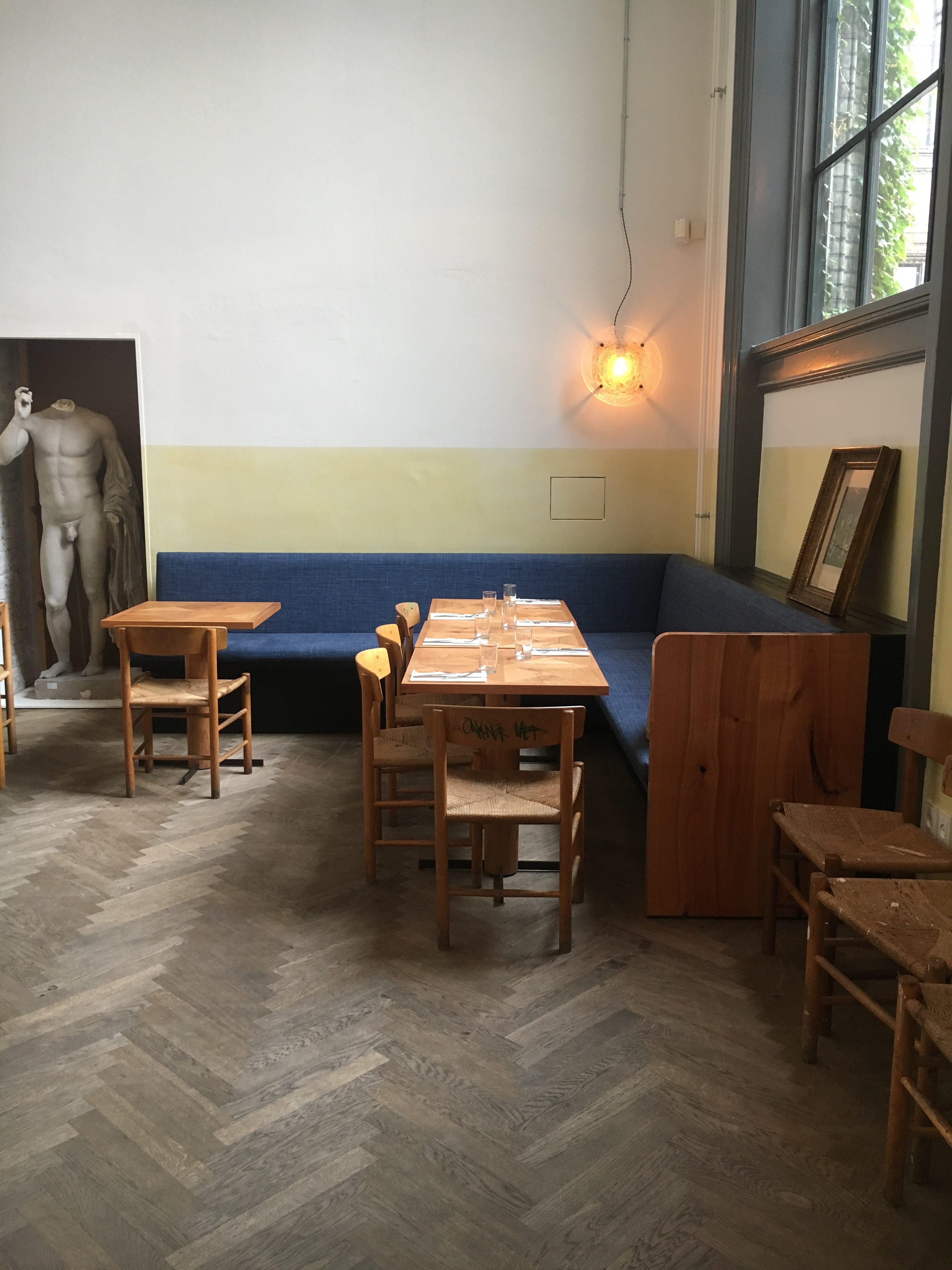
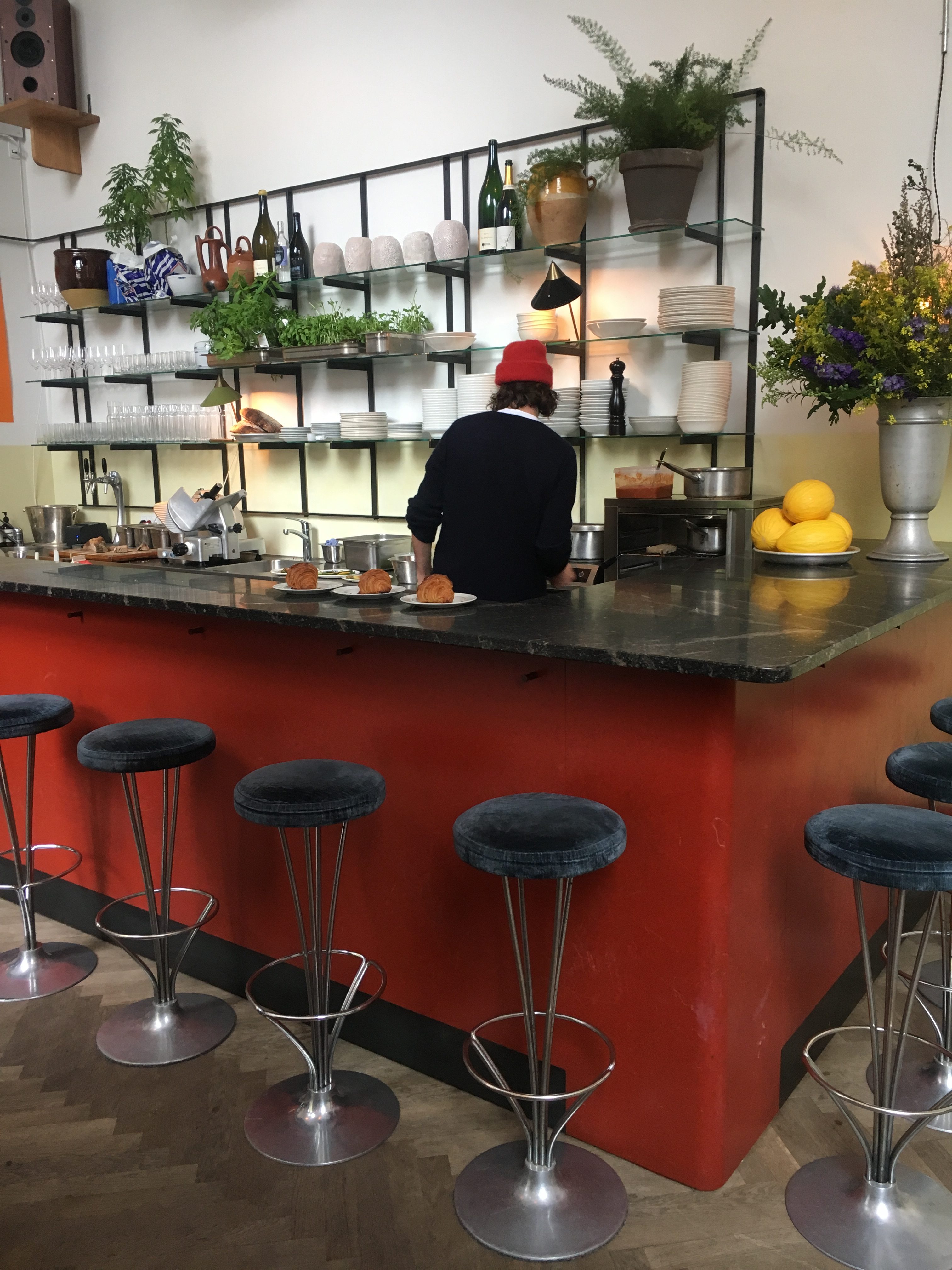
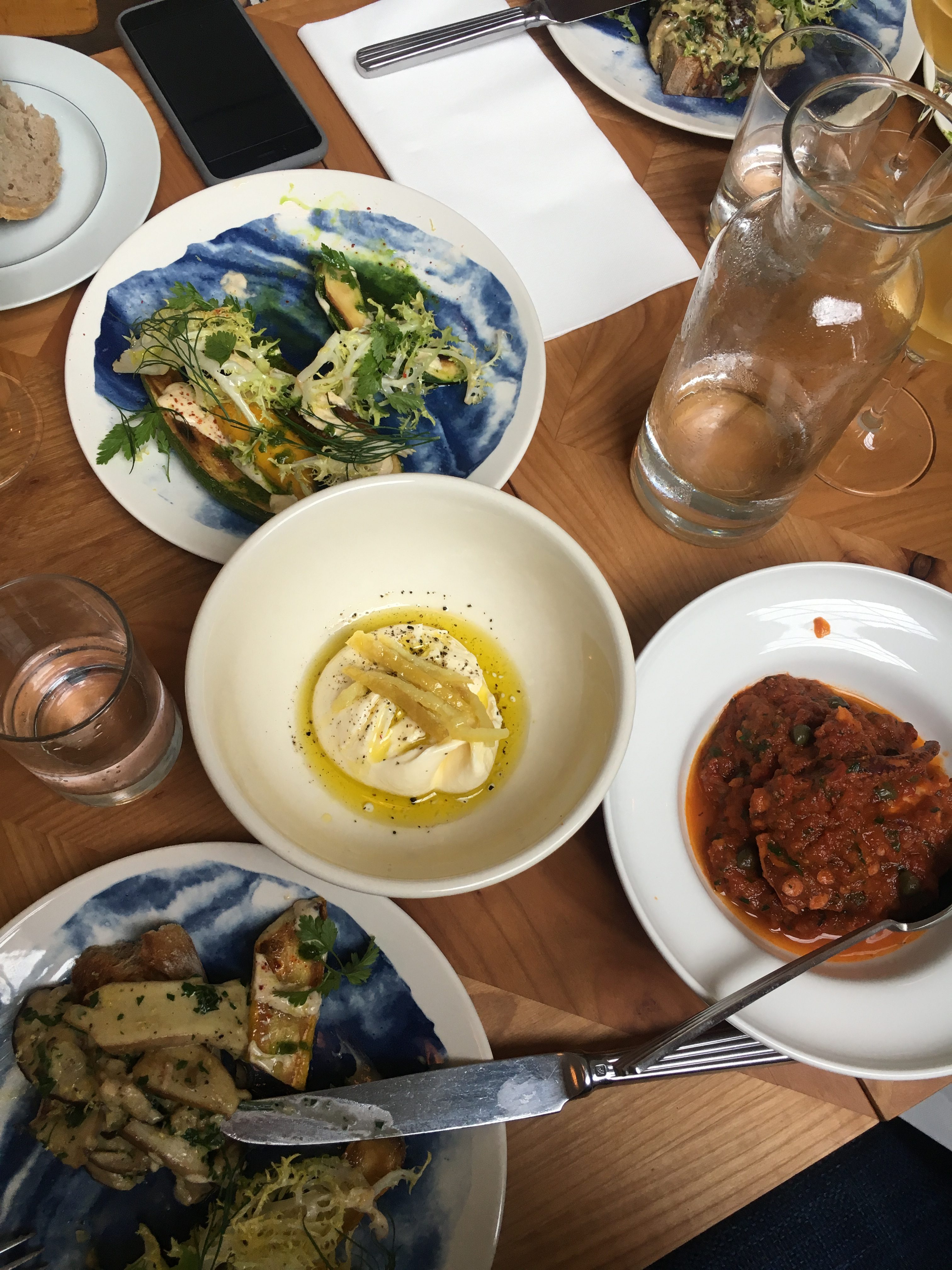
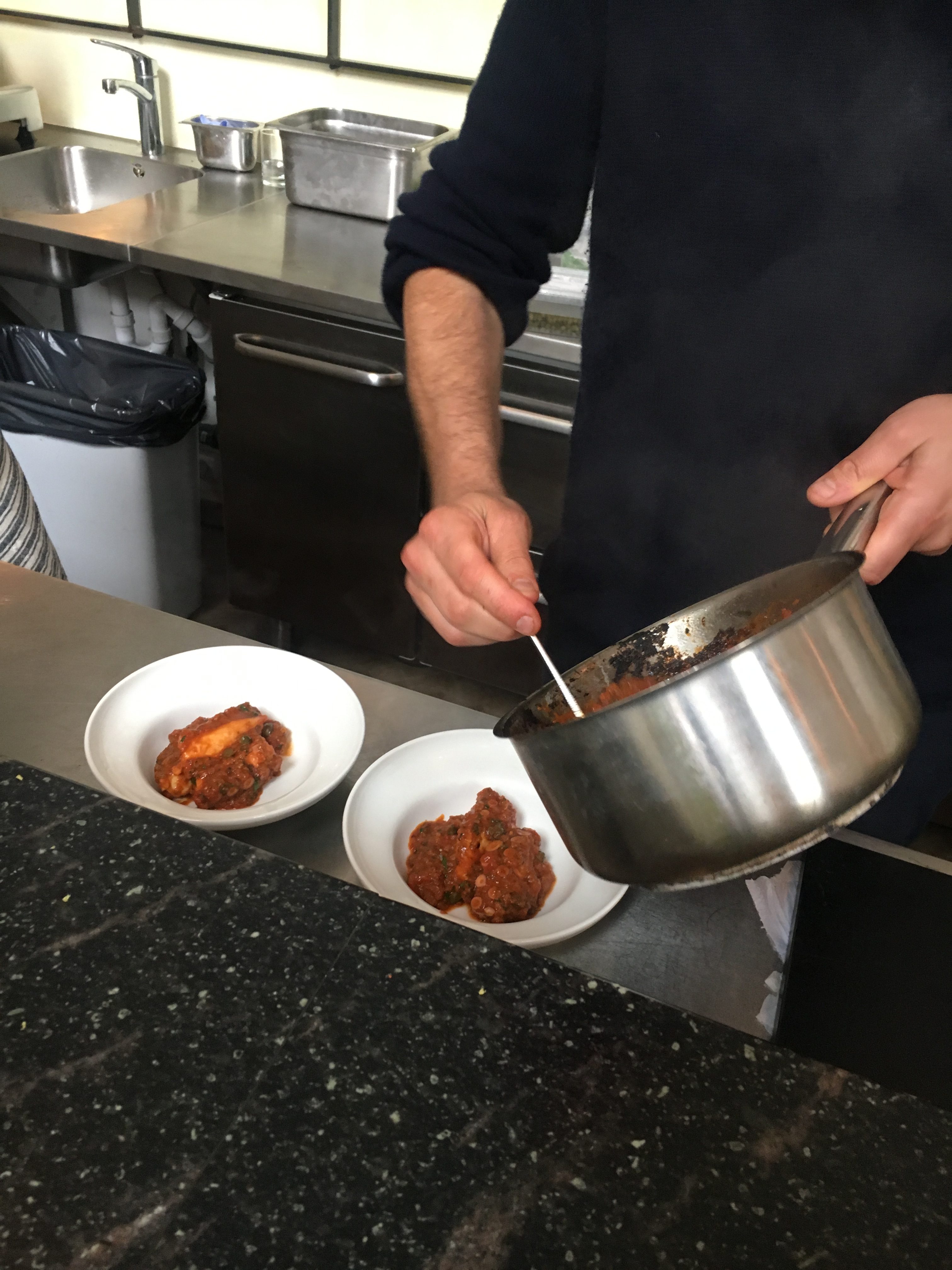
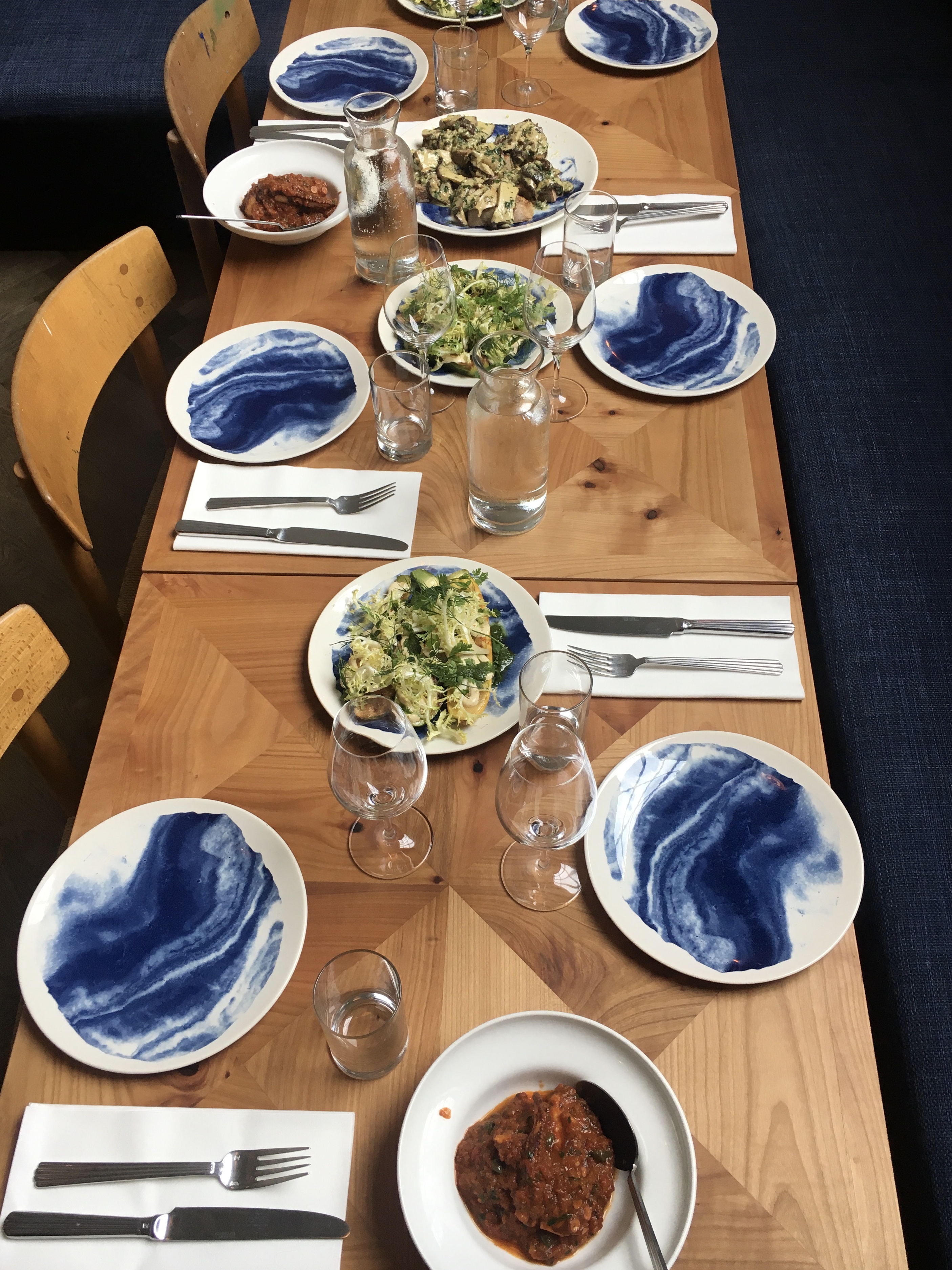
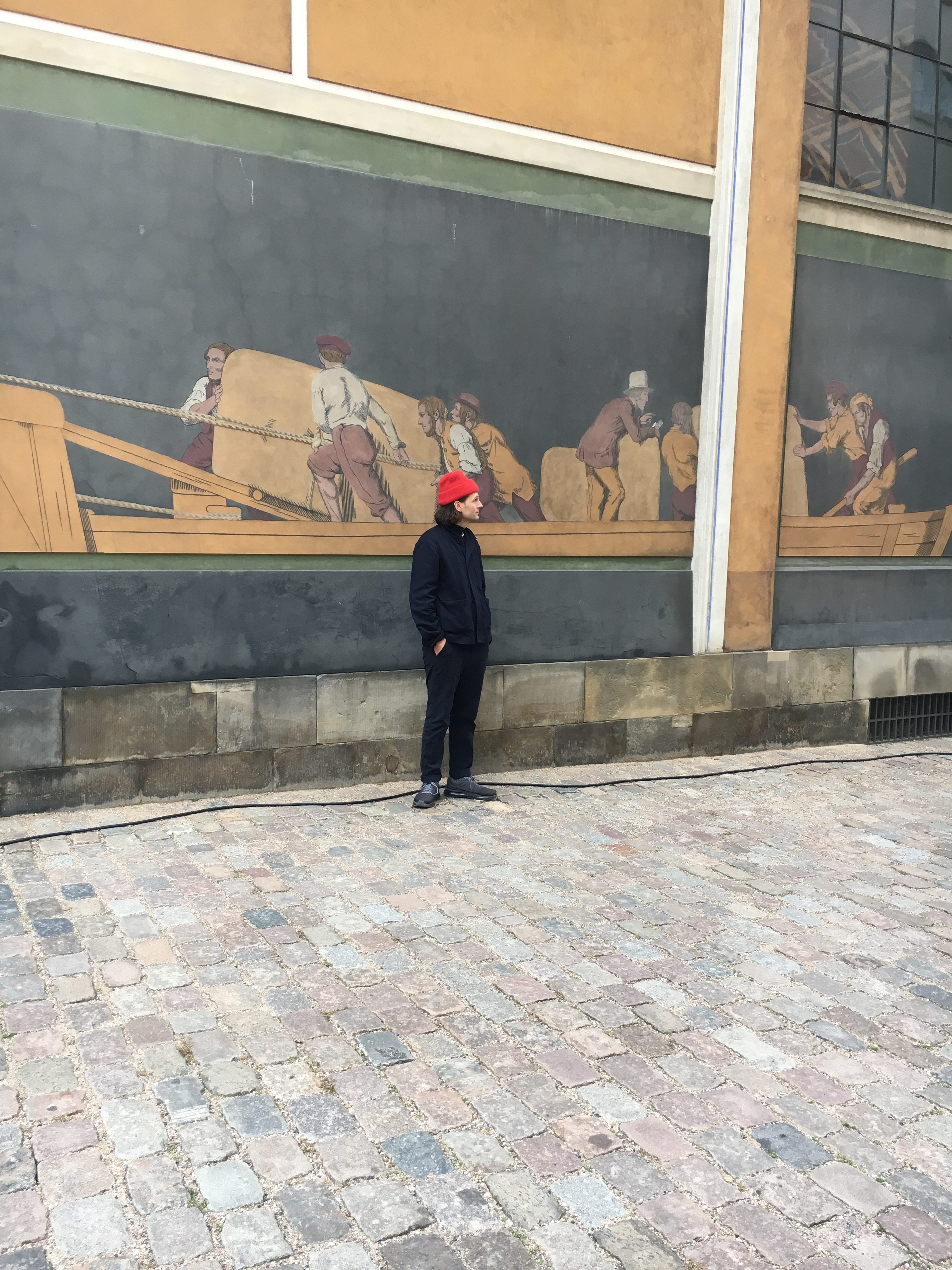
Frederik Bille Brahe,
Copenhagen,
September 3rd, 2017
Photography by Inga Krieger
I met Frederik Bille Brahe in 2017 when visiting Copenhagen to do a magazine story about him and the city. As for so many his simple but delicious food had caught my attention. Always, when visiting Copenhagen I ended up at Atelier September, a small café on Gothersgade that had served delicious food already before it became famous for its avocado toast. To me it was more the details in the space, the notion of being at somebody’s home rather than in a café, that I found so intriguing. Experiencing Frederik then as the generous host as he is, this interview was conducted from the conversations in between while he was showing me the places that are so dear to him in the city.
At the moment, you are running four successful restaurants. Do you still enjoy what you started out doing – cooking?
Yes, although it is a bit more complicated than that. The reason I love cooking is that I love bringing people together. I enjoy doing something nice for others and food is a very good way to do so. But after school, when I became a chef, working in different restaurant kitchens in Paris and London, I hated it. Only over the years I found a way to use food to collaborate, to learn from other people’s fields. Besides the social aspect of food this is what it is all about for me.
What was fine dining like when you left culinary school? What made you hate it?
It was more like an army environment. Nobody was sensitive, nobody took the time to explore produce, to actually smell that tomato. At some point I was bullied and feeling really frustrated. Eventually I lost my initial desire for cooking.
What did you, being a chef but not wanting to cook?
I started making music, and the record label, which I founded back then, I still have today. I went to Berlin a lot at that time. I remember playing at Wilde Renate, Panorama Bar, Arena and Bar 25. Through music I travelled all over the world until I had a breakdown.
What had happened?
I remember that day so well because it was the day Michael Jackson died. I was lying in bed at my parent’s house, totally smashed. I had just lost my girlfriend, and came back from Sonar Festival where I did way too many drugs. My dad was incredibly sick, almost dying. And I was lying there, at my parent’s house hearing about Michael Jackson’s death, I remember thinking: Wow, he finally died. Not because I was happy about it but because it was so inevitable. Seeing it becoming reality made me think: What the fuck am I doing with my life?
For me it is all about giving guests something they would never expect. Being over-personal.
What was your conclusion?
I needed to change. From one day to the next I quit everything, from DJ-ing and over drinking to drugs. Instead I started to run, every day. The first two kilometres were painful. You can imagine I was not in good shape, very unhealthy. But I kept on running and in the end I became a long distance runner, going for 25 km a day. I was trying to find out what I should do with my life. I wasn’t thinking about cooking at all, instead I wanted to study architecture or become an artist.
Didn’t you feel lost?
Yeah, totally lost. But I think it is okay to feel lost sometimes. I just needed money at some point and the only thing I really knew how to do was cooking. So I got a job at an airport hotel. We mostly cooked for people whose flights were cancelled. All of a sudden 350 people might come in and want to eat from the buffet. The food was a disaster. I hated it, everybody else hated it.
So you quit?
Eventually. I realized I had these preferences towards cooking. I actually had some ideas of what was good and what was not. But before opening my own place, I decided that I needed a good job first. I started working with Erwin Lauterbach, the chef of restaurant Saison, who became my mentor.
He was one of the first chefs who cooked vegetarian with a fine dining approach. Why did you decide to work there?
In some way I grew up with him. My childhood home is very close by his restaurant. Every morning on my way to school when I passed by I was trying to get a glimpse of the menu. But mostly I saw Erwin and was so scared. All these years later I asked him for a job and was lucky enough he gave me one. I stayed for four years and became a vegetarian myself.
The thing with Rune is, I know Rune is better than me. And I really like that.
What did you learn during that time?
I found my drive for cooking again, and the beautiful space that used to be a vintage furniture store.
…where Atelier September is now. What was the idea behind the café?
My hero is Alain Passard and I really wanted to open a vegetarian restaurant. But I wasn’t allowed to stay open in the evening. We couldn’t serve wine, we pretty much couldn’t do anything. But I loved the space so I did it anyways.
The first dishes like avocado toast and granola are still on the menu and have become quite famous through Instagram.
I was really lucky that Atelier September was successful from the beginning, that people liked it. I think the room has something to do with it. It alone is already beautiful but it is the little things I brought here that make the space – all the ceramics I brought back home from Japan or weirdly looking objects and art pieces. That blue and white vase is from my family, the drawings from David Shrigley’s are from gallery Nicolai Wallner, the bench and marble tables are made by my friend Rune.
So it is not necessarily the food that made Atelier September so successful?
For me it is all about giving guests something they would never expect. Being over-personal. I like generosity, I think being generous attracts people. This place tries to be generous at all times, also by leaving stuff. I think nobody really reads the small conversation books by Hans Ulrich Obrist but still they are here.
It’s funny that a place with all these haptic details works so well in the virtual world. How do they fit together for you?
Instagram has been very important, it just helped making this place successful. And I don’t think it’s a bad thing. This place is very aligned with what the Instagram mentality is about – marble tables, beautiful simple food. But the food is only that way because it is served in this room.
The older I get the more interesting it is to share something with people who are not from the same profession.
You designed all of your restaurants together with Rune Bruun Johansen, who is an art and furniture dealer in Copenhagen. What is your collaboration based on?
I think we share certain values. When I work with Rune all these things you would normally have in a professional relationship, they don’t exist for us. We have no such thing as a contract. Rune is so talented, he probably is the most talented furniture designer and dealer out there. For me it’s also about trust. I learn a lot from him.
Aren’t you afraid to work with friends?
No, not at all, the opposite actually. In Japan they say if you make a contract that is reason enough to not work together.
Because it means you don’t trust each other?
Exactly. The thing with Rune is, I know Rune is better than me. And I really like that. When I suggested a stone as a table top of the bar at Apollo Rune told me about this very special one. He said it is going to look beautiful and I totally trusted him. There is not the tiniest doubt. It’s the mistakes you learn from. I realised that when I started a record label with a guy. He was quite greedy and became very unfriendly. But I learned from that, money can change how people act. Now I have the record label together with another friend and it’s going well.
It seems your work is very much based on collaboration, but not necessarily with other chefs.
The older I get the more interesting it is to share something with people who are not my family or from the same profession. I want to learn from other fields. We all live in this world that is so commercial with so many responsibilities. It’s so seldom that you really enjoy the qualities of others. A lot of people are so focused on gaining prestige.
In the culinary world prestige is still very much connected to Michelin stars and voter’s lists. When did you realize that the fine dining world is not your world?
Oh, a long time ago. But I was never really good at anything so I always did my own thing in a way.
You don’t think you are a good cook?
No, not like others. I think the biggest reason for that is I don’t care enough. I am not necessarily that guy who just wants to have fun and smoke weed, but I think there is always a different way to do things. At Atelier September the idea was always to cook easy food that is tasty. It is just simple, very Japanese in a way. Also, the minimalism, the very clean and simple lines are influenced by my love for this culture.
Many chefs are inspired by Japan. What do you admire most?
People there are trying to be really good at one thing, very focused, humble and generous but they are also very service minded. That deeply impresses me. I will always go back to Japan.
What brought you there in the first place?
The first time I went there was to DJ-ing. Then I went back with my ex-wife, she was very inspired by Japan. We did a round trip where I met a lady called Sonya Park. She became a very good friend, almost like my Japanese mom.
If I lived in Japan I would be a very different person.
Sonya Park, the founder of Arts and Science?
Yes, I met her by coincidence. She has a small restaurant but of course also a very big clothing business called Arts and Science. After we met in Japan she came to Copenhagen and we had a good time. When I got divorced I wrote her a letter, saying how fucked up I was. She suggested we should travel together to get some headspace, so we did a trip. We went to Napa, to visit Alice Waters, after we went up further to Patricia Curtan who did all the illustrations for Alice. Then we went to Japan, stayed there for a bit. I ended up in Salzburg for the big Chanel show. Caroline, my girlfriend at the time and now wife, was doing the show. Sonya is so amazing, I think her and Rune are the coolest people I have ever met.
What makes Sonya so special?
It begins with her life story. She is in her mid 50’s now, from Korea, and grew up in Hawaii, in a totally gentrified American society. She has some heritage from Japan, I think her father grew up during the Japanese invasion. He speaks Japanese, very sophisticated, loves classical music and is still alive today, I think. Sonya was interested in fashion early on. When she moved to San Francisco she worked at a store where she got in touch with Comme des Garçons. Of course, she became very interested in Rei and eventually moved to Japan. She tried to make it as a stylist but no one wanted to work with her because she was Korean. The relationship between Korean and Japanese is complicated.
That is hard to imagine now since she is one of the most popular figures in Japanese fashion today.
Yes. It was only when she decided to shoot Japanese models on the street that something shifted. She created a whole new style of Japanese fashion. Until then, in the early 80s, you only saw European models in advertisement. But through her different approach Sonya suddenly became super famous, styling all these big rock bands. If you meet anyone in Japanese fashion today, they admire her.
Do you think you are ever going to live in Japan?
I thought about it and I am not sure. What I know is if I lived there I would be a very different person.
Edited for length and clarity